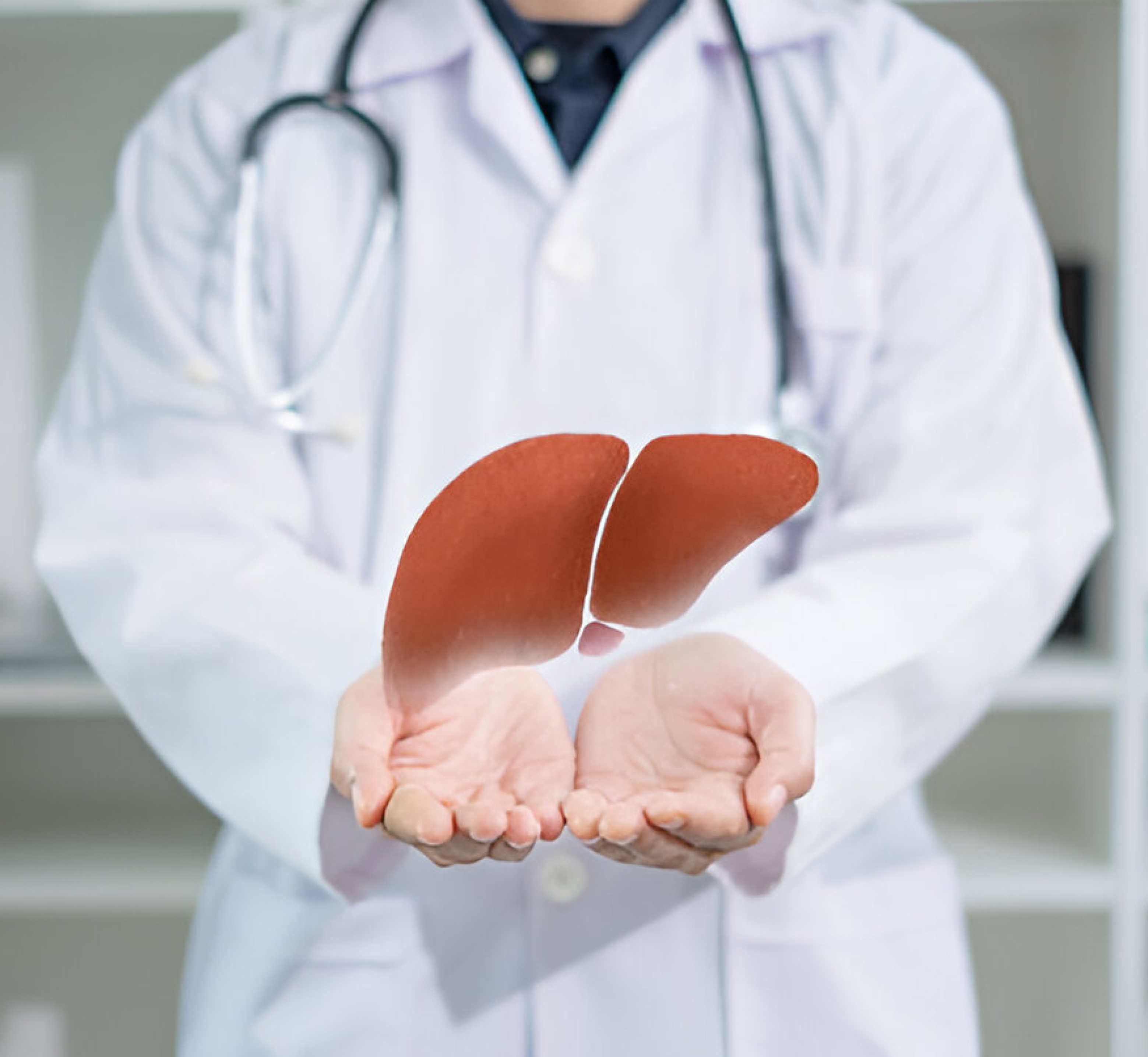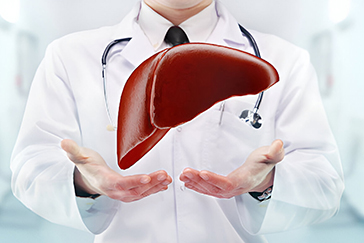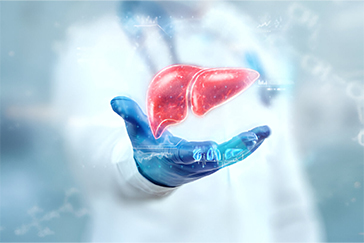 Book Appt.
Book Appt.
 Call Now
Call Now


Cirrhosis of the liver is a stage of liver disease in which healthy liver tissue has been gradually replaced with scar tissue. This is a result of long-term, chronic hepatitis. Hepatitis is inflammation in your liver, which has many causes. When inflammation is ongoing, your liver attempts to repair itself by scarring. But too much scar tissue prevents your liver from working properly. The end stage is chronic liver failure.
Symptoms
Cirrhosis symptoms can be classified into two types: those associated with deteriorating liver function and those associated with portal hypertension. Symptoms of blocked bile flow, such as jaundice, are classic indicators of poor liver function. Symptoms of portal hypertension imply cirrhosis, particularly. Scar tissue in your liver compresses the portal vein. Cirrhosis symptoms associated with decreased liver function include:
Causes
Cirrhosis is a progressive scarring process caused by chronic inflammation in the liver. Any chronic liver illness that produces chronic hepatitis can progress to cirrhosis. The most common causes are:
Diagnosis
A healthcare physician will first physically examine you for signs and symptoms of cirrhosis of the liver. They'll ask you when your symptoms started and whether they've altered over time. They will also inquire about your medical history, the drugs, herbs, or supplements you use, and your food and lifestyle. They will look for signs that may indicate a history of liver disease or injury. They will do additional medical tests to look for signs of liver cirrhosis. Tests can include:
Treatment
Cirrhosis causes persistent scarring in your liver that cannot be undone. While your liver has remarkable healing powers in general, cirrhosis is a stage of disease in which it no longer has enough healthy cells to heal itself. However, you may be able to reduce or prevent cirrhosis from growing further. This is determined by the reason, the extent to which it may be treated, and how well you respond to the treatment. Treatment for liver cirrhosis involves the following:
Prevention
You can stop liver disease from advancing to cirrhosis by treating it sooner. This is dependent on whether you are aware of it and whether you can take action to avoid it. Many people might not have symptoms at first, but a normal health checkup may assist in detecting them. This may provide you the opportunity to make significant adjustments or begin treatment.
Conclusion
Liver cirrhosis is a life-threatening disorder that requires early detection, lifestyle adjustments, and medical intervention to avoid complications. Individuals who are aware of the causes, symptoms, and treatment choices for liver disease can take proactive actions to safeguard their health. Adopting a healthy lifestyle and getting timely medical care can dramatically lessen the burden of liver cirrhosis, resulting in a higher quality of life and better results.
SHALBY Sanar International Hospitals provides extensive medical procedures backed up with our state-of-the-art technology and a team of highly qualified & experienced clinical experts.
Our doctors pen down their research findings and experiences from time to time. Their words provide deep insight into the latest techniques, technologies and other advancements in healthcare. It provides expert answers to all kinds of health questions for real-life issues.
VIEW ALL




Since the day of its foundation, SHALBY Sanar International Hospitals is committed to provide comprehensive healthcare services. It regularly organizes awareness programs in its premises and encourages outdoor healthcare activities and camps with an intent to put focus on preventive healthcare.
VIEW ALL